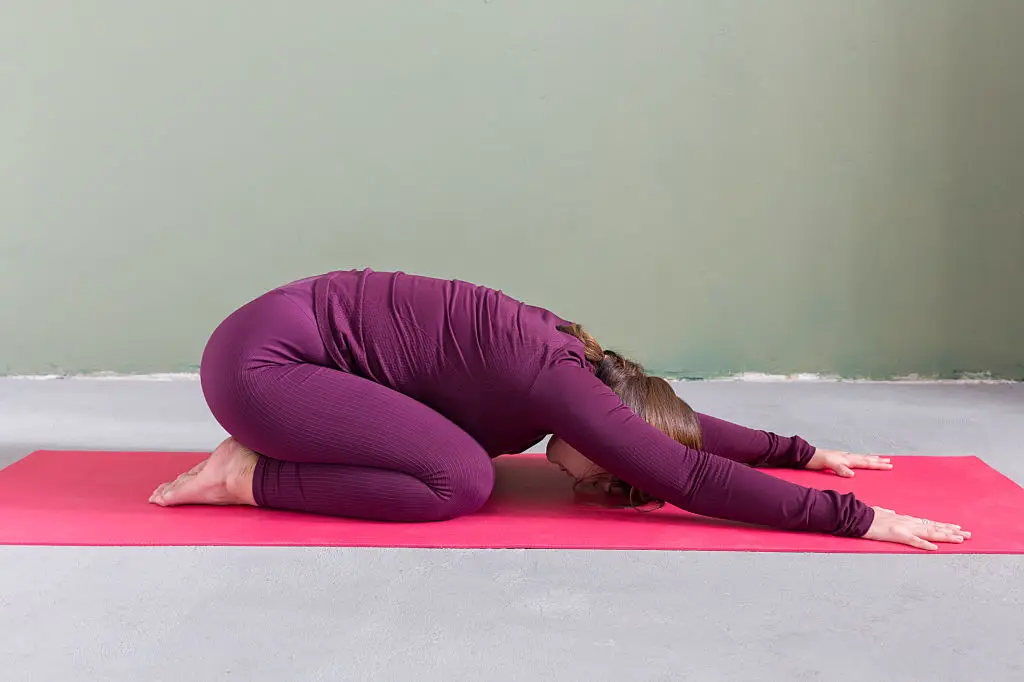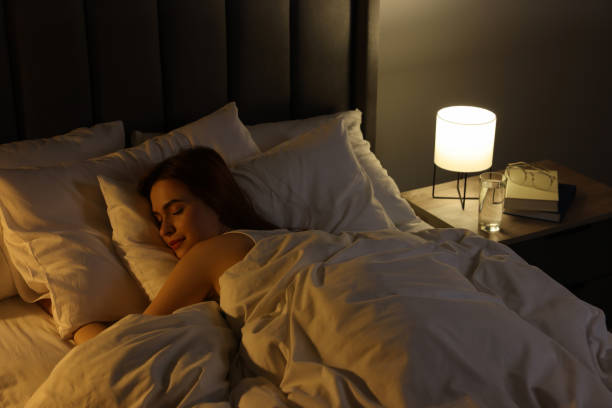9 Evening Rituals That Can Naturally Lower Your Cortisol and Improve Your Sleep Quality
Winding down at the end of a long day isn't always as simple as slipping under the covers. For many of us—especially as the years go by—racing thoughts or stiff muscles can keep true rest just out of reach. The culprit behind those restless nights and that on-edge feeling? Often, it's a little hormone called cortisol. Known as the "stress hormone," cortisol has a vital job in the body—helping us wake up in the morning and giving us energy through the day. But when it stays too high at night, falling and staying asleep can feel nearly impossible. The good news? You can shift these patterns gently, without overhauling your entire lifestyle. Cultures around the world have long used nightly rituals to signal to body and brain: "It's time to rest." Modern science confirms that regular habits—big or small—can lower evening cortisol, making it easier to drift off and wake up refreshed. Whether you prefer a soothing soak or a simple breathing practice, even one little shift is worth celebrating. Below, you'll discover nine evening rituals that combine ancient wisdom with the latest research. These are easy to personalize, gentle on your schedule, and designed to help you feel more peaceful at bedtime. Try one, or try them all—the results may surprise you.
1. Soothe with a Warm Bath or Foot Soak

Slipping into warm water isn’t just a comfort—it's science-backed wellness. Taking a bath or even soaking your feet in warm water helps regulate core body temperature, a key part of your sleep cycle. When you step out of the warmth, your body starts to cool down, which signals to your brain that it's time to wind down for the night. This temperature drop is no accident; Japanese ofuro bathing traditions and similar rituals in cultures worldwide have shown the wisdom in scheduling a bath an hour or two before bed. The process is simple: fill your tub or a basin with water between 104–109°F. Soak for 10–15 minutes, enjoying a moment of calm. Don’t have a full tub? A foot soak works wonders and is easier on joints or mobility. The benefit isn’t just physical—these rituals give you precious time to pause and let go of the day's mental clutter. For older adults or anyone with limited space, making this a seated, safe routine ensures comfort and safety. Adding a few drops of calming essential oil can deepen relaxation, but it's not required. As you towel off, notice how your muscles feel softer and your thoughts a little quieter. That’s your body, gently preparing itself for real rest.
2. Dim the Lights and Embrace Darkness

Bright lights—especially from screens—can trick your brain into thinking it's still daylight, pushing your natural sleep hormones aside. To help your body lower cortisol and make more melatonin (the sleep hormone), try dimming household lights about an hour before bed. Soft bedside lamps and adjustable dimmers work wonders. If you find yourself tempted by TV or your phone, consider switching to a gentle reading light or simply keeping screens out of the bedroom altogether. Experts like Dr. Jacob Teitelbaum recommend blackout curtains or a comfortable sleep mask for the best results. Even a small nightlight or streetlight glow can wake up your brain just enough to disrupt deep sleep. Taking five minutes to check your lighting now pays off with better rest tonight. If you share your space, dimming lights together can be a calming shared ritual. For those with vision or mobility changes, smart bulbs or plug-in timers make it even easier. Think of this as creating your own invitation to the night—gently telling your brain and body, "It’s time to let go." Lower lights, lower stress.
3. Savor a Cortisol-Calming Herbal Drink

There’s a reason why bedtime teas have stood the test of time from Marrakesh to Mumbai. Gentle herbal infusions—think chamomile, mint, or even a creamy golden milk—can help signal to your body that stress time is over. Research links certain plants (like ashwagandha and turmeric in "moon milk") to lower levels of nighttime stress hormones and better sleep quality. Preparing a warm, caffeine-free drink is a ritual all its own. Steep a cup of chamomile or prepare warm milk blended with a pinch of turmeric and honey. For those taking medications, check with your healthcare provider about possible herb interactions. The key is not just the drink, but the pause it creates. Sit quietly, breathe in the soothing aroma, and let the warmth relax you from the inside out. If standing for long is tough, keep all your supplies within easy reach near a comfortable chair. Sipping slowly, you might notice your jaw relaxing and your breath slowing—a small but important cue to your nervous system that sleep is on the horizon.
4. Practice Gentle Movement or Stretching

Gentle movement can work wonders to release tension and bring down stress at the close of the day. While vigorous exercise too close to bedtime can spark alertness, simple yoga stretches, tai chi routines, or even a slow walk after dinner can help your body process the day and enter a state of restfulness. Cultures across the Mediterranean value the evening "passeggiata"—a social walk not for fitness, but for calm connection. If a walk isn’t practical, simple stretching (like reaching overhead, gentle twists, or rolling out tight shoulders) can be done from a bed, chair, or standing. The trick is to focus on how your body feels, not on intensity. For those with physical limitations, stretching fingers, wrists, or ankles delivers gentle benefits too. What matters most is showing up for your body. As joints loosen and muscles unwind, your mind tends to follow. This little bit of movement tells your body, "We're safe now," making it easier for those stress hormones to settle down by lights-out.
5. Embrace Mindful Breathing or Meditation

Intentional breathwork and meditation truly earn their reputation for calming the mind and body. Slow, mindful breathing signals your nervous system to shift gears, lowering nighttime cortisol and making space for peaceful rest. The 4-7-8 breathing technique—inhaling for four counts, holding for seven, exhaling for eight—can ease mental chatter and quiet anxious thoughts. Many communities, from Thai Buddhist households to modern wellness seekers, use short meditation or gratitude rituals before bed for this very reason. If you’re just starting, guided meditations from an app, audio, or even a friend’s voice can make it feel approachable. Settle in somewhere comfortable, close your eyes, and try just five or ten minutes nightly. Can’t sit still? Lying down works, too. Over time, you may notice anxieties soften before sleep arrives. What matters is not perfection, but gentle attention—meeting yourself with patience. That’s when the true magic of these practices starts to unfold.
6. Connect with Loved Ones (or Practice Gratitude)

Emotional safety and feeling cared for are powerful cues for your body to turn down stress. Sharing a few heartfelt words with family, friends, or even jotting a note of gratitude in a journal helps shift the brain from alert mode to rest mode. In many cultures, evening storytelling, prayer, or music circles invite a sense of connection before sleep. Not living with others? Phone calls, video chats, or recalling a special memory can provide the same calming effect. A gratitude journal—writing just three good things from your day—shifts your focus from worry to contentment. For older adults living alone, reading a favorite poem aloud or listening to soft music can create a gentle evening ritual. Research shows this emotional grounding sends a message to your nervous system: "We’re safe for the night." Whether you’re surrounded by loved ones or enjoying your own company, connection and gratitude are gifts—no matter what the day held.
7. Create a Sleep Sanctuary

The space where you rest sets the tone for your night’s sleep. Experts recommend keeping bedrooms cool—think 65 to 68 degrees—dark, and free from clutter or buzzing electronics. Blackout curtains, soft bedding, and calming white or pink noise can all work together to transform your bedroom into a true sanctuary. Small investments—like a cozy blanket, an adjustable lamp, or an affordable sound machine—make a big difference. Even if you share your space or have a smaller room, small changes add up. Dr. Laura Purdy reminds us that the brain takes environmental cues seriously: the quieter, darker, and more comfortable your space, the less likely stress hormones will linger. Take a few moments each evening to adjust your room to suit your needs. Soft lighting, a gentle breeze, and cherished photos can add a touch of calm. Over time, these cues tell your body, “Here, it’s safe to let go.”
8. Try a Soothing Self-Massage or Facial Massage

A gentle self-massage can be a small but mighty addition to your wind-down. Research led by Dr. Jacob Teitelbaum found that even a brief facial massage before bed can improve sleep and reduce next-day sleepiness. Using your fingertips, softly massage your temples, jaw, or shoulders in slow circles, adding a favorite lotion or soothing oil if you like. These moments are not about pressure but about grounding your attention in the present. If hand or joint pain makes massage tricky, consider using a soft washcloth, gentle pressure with the heel of your hand, or a warm compress. Many cultures use massage as an act of self-kindness, honoring the body’s unique needs at every age. Take a minute to notice how the touch relaxes not just your face, but your breath and mind too. In this pause, you create an atmosphere of calm that lasts beyond bedtime—and sets the tone for how you greet tomorrow.
9. Set a Simple, Consistent Sleep Schedule

One of the most powerful ways to reset your natural sleep hormones is with consistency. Going to bed and waking up at the same time—even on weekends—signals to your internal clock that it's safe to lower cortisol and drift into healthy, deep sleep. If your routine has gotten off track, remember that it’s never too late to start fresh. Begin by choosing a bedtime that feels doable (even if it’s a little later than ideal), and stick to it for a week. If needed, adjust in 15-minute increments each night. Setting reminders—like a calming alarm or automatic lamps—can help transition you into wind-down mode. Flexibility is key; life happens, and small setbacks are part of the process. Over time, your body and mind will start anticipating sleep, making it easier to fall asleep quickly and wake up refreshed. Celebrate small wins. Every night you follow your rhythm, you’re teaching your body that rest is a priority worth protecting.
Embracing Evening Rituals: A Gentle Path to Rest

Building a more restful bedtime doesn’t require radical change—just a handful of gentle shifts, shaped by your own preferences and daily rhythms. Each small ritual is an act of self-compassion, sending a message to both body and mind: “You’ve done enough today; it’s time to rest.” Whether you choose a warm bath, mindful breathwork, or a chat with a loved one, know that each step moves you closer to ease. Everyone’s journey to better sleep is unique. Start by picking one ritual that feels manageable and meaningful; the rest can be added as you grow more comfortable. Savour the moments of quiet, the comfort of routine, and the comfort in knowing change can happen at any age. Be kind to yourself in the process—progress over perfection is the truest victory. As you weave these rituals into your evenings, remember: deep rest and steady energy are rewards for the care you give yourself. Restful nights don’t just make tomorrow brighter—they nurture your well-being in body, mind, and spirit. Sweet dreams.
